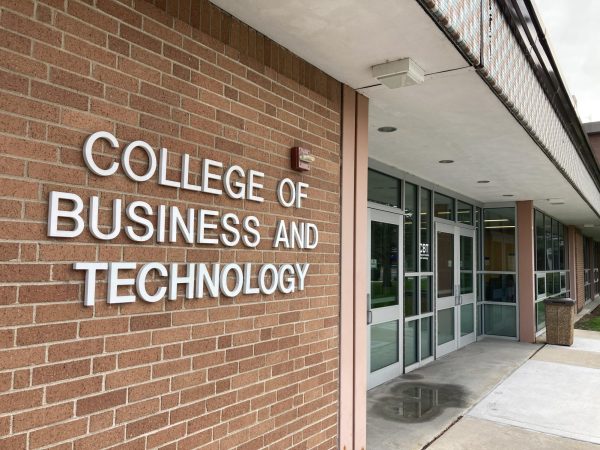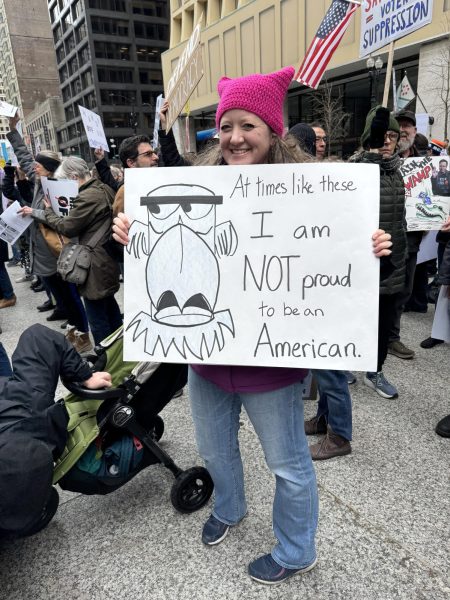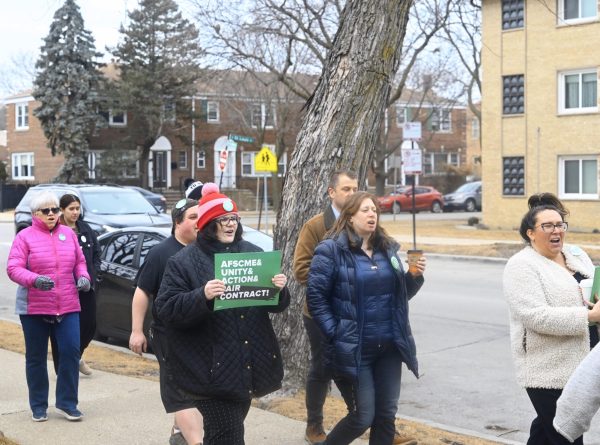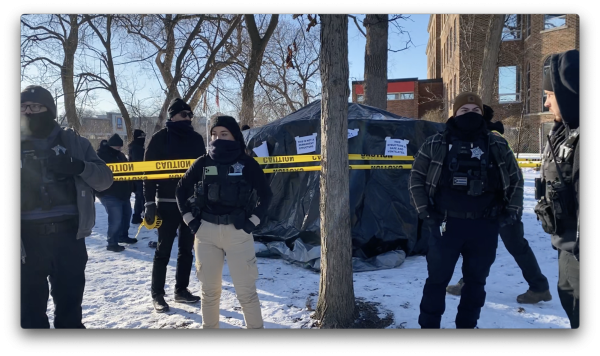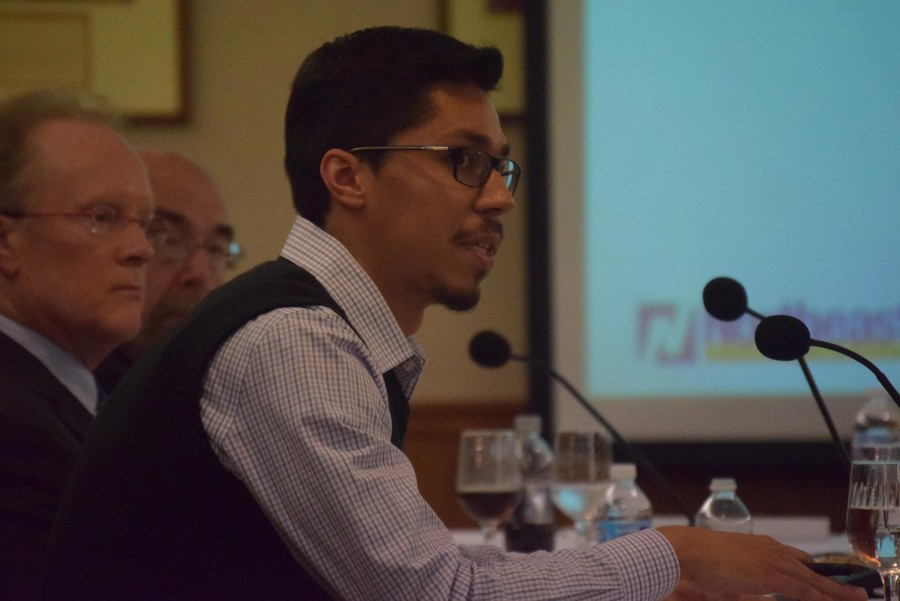Tuition Discussed at Finance Committee
A ‘Band-Aid approach to budget woes
Recent News
Student Trustee Pedro Nungaray speaks to the finance committee.
As Illinois struggles to fund state universities, NEIU admins ponder solutions to keep the school financially stable for the long term.
Trustee Omar Duque laid out some of the political conditions the school faces.
“This year is even more challenging, because the state of Illinois doesn’t have a budget yet,” he said, in reference to the fact that Illinois continues to lack an operating budget four months into its fiscal year.
“There is no indication that the state will have a budget any time soon,” Duque said.
The comments come from an Oct. 15 meeting of the university’s financial committee, which will recommend action at the November Board of Trustees meeting. Specifically, the committee will recommend action regarding new tuition rates for the 2017 financial year.
Hahs also presented various potential scenarios the school may find itself in the next year, highlighting a best-case scenario in which state appropriations are cut by 6.5 percent. Even with 6 percent increase in tuition, the school would need to cut a projected $1.6 million.
“No matter what we do, whatever your recommendation is, whatever’s approved, there’s another cut in our future next year,” Hahs said.
Though no final decision was reached, the committee is considering a recommendation of anywhere from a 6 to 10 percent increase in tuition. Those rates would apply to incoming students — all current students are locked in for six-years after the year in which they enrolled.
Also proposed was a variety of fee increases, including a new $3 library fee.
“What we’re finding especially with more and more electronic resources, those costs is escalating at a higher rate than we can keep up with them,” said Richard Helldobler, provost and vice president of academic affairs.
The proposed fees, including the library fee, would increase total fee costs by $8.55 per credit hour.
In closing discussions, both trustee members and school administrators expressed frustration with budget problems caused by the state.
Trustee member Darlene Ruscitti said, “I feel like we’re putting on Band-Aids. We’re doing a Band-Aid approach.”
Most of the committee agreed that, without more solid state support or other sources of revenue, the following year would likely require a tuition increase.
Duque posed a question to the committee.
“Who is our responsibility to?” he asked. “Is it first and foremost to our existing students? I would imagine it is, but then a portion of it is also to the community that could potentially be our future students.”
He spoke on the university’s goal of graduating a greater number of students.
“How do we get them there?” he asked. “Is there another way? Without putting the burden onto this new generation of students which may or may not be able to afford a (hypothetical) 25 percent increase of what our tuition is right now?”
As some committee members wondered what student reaction might be like, they looked to student trustee Pedro Nungaray for a response.
“Obviously no student wants a tuition increase,” Nungaray said. “But at the same time it’s important to note that this university as an institution is at risk because we don’t have the appropriations.”
Nungaray said that student reactions to a change in tuition rates might differ depending upon how much they knew about the state’s budgetary problems.
“To simply say we’re going to raise tuition,” he said, “that will elicit a different response, as opposed to ‘we’re looking at the possibility of raising tuition’ when we look at three to four factors going on due to other state actors.”
The committee will make its recommendation Nov. 19 at the next Board of Trustees meeting, held in the Golden Eagles room.
Your donation will support the student journalists of Northeastern Illinois University's The Independent, either in writers' payment, additional supplies and other items of note. Your contribution will allow us to purchase additional equipment for writers/photographers/illustrators and cover our annual website hosting costs.
Luis Badillo



